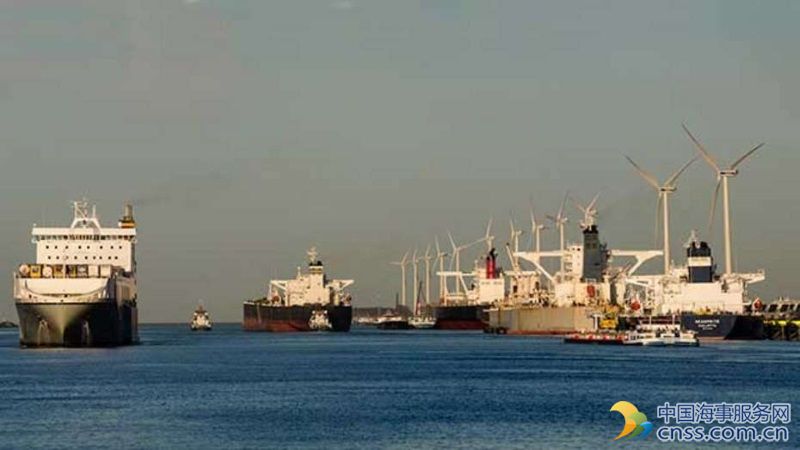Port of Rotterdam throughput decreased by 3.0%

Compared to the exceptionally good first half of 2015 (when throughput increased by 6.8%), Rotterdam handled 3.0% less cargo in the first six months of 2016. The most pronounced decrease could be observed in the dry bulk segment (-9.9%). Although the port handled a slightly lower volume of liquid bulk (-1.1%), the volume of crude oil and oil products put through so far in 2016 is still at an historical high. The port’s container throughput (in TEU) decreased by 2.3%. While Rotterdam’s offshore sector realised a number of large-scale projects, this industry has been negatively affected by lower investments in oil and gas extraction.
Rotterdam’s market share in the Hamburg-Le Havre range increased from 38.0% in the first quarter of 2015 to 38.3% in the first quarter of 2016. Overall this means that, given the current difficult macro-economic circumstances, Rotterdam’s port business community is performing well compared to companies in competing ports.
Turnover in the first half of 2016 equalled €336.9 million, a €2.0 million decrease compared to the first six months of 2015. Sea port tariffs decreased by €5.8 million, which is mainly attributable to reduced throughput figures. Income from contracts increased by €4.5 million. Net result in the first six months of 2016 totalled €96.6 million, compared to €122.5 million in 2015. This difference can be attributed almost entirely to a one-time payment in connection with the partial cancellation of an interest rate swap. While this increased the Port Authority’s financial expenses in 2016 by €29.3 million compared to 2015, it will result in lower interest charges in the years ahead. Investments for the full year 2016 are expected to be virtually equal to those made in 2015.
Rotterdam’s port and industrial complex operates in a highly dynamic environment. A variety of factors lead to uncertainty, but definitely also present opportunities. These include: the Paris Agreement on climate change; a lack of clarity regarding the shape of the energy transition, both nationally and internationally; the consequences of a Brexit and increasing protectionism; ongoing pressure on oil prices; the digitisation of society; the establishment of new alliances by container shipping companies; etc., etc. Over the next few years, two developments will be particularly relevant to the port: the energy transition and digitisation. The port is favourably positioned to make major strides in both areas. It is precisely the sheer scale of Rotterdam’s energy and chemical cluster – as well as the size of it is logistics flows and the fact that a number of leading companies are located in the port area – that makes for such a good starting position, whether the plan is to tap into new options for increasing efficiency, to develop biobased production, take advantage of residual heat, capture and store CO₂ emissions or organise logistics processes more efficiently with the aid of smart IT applications. Innovation plays a key role in many of these processes. Over the past six months, the Port of Rotterdam Authority has taken a number of concrete steps in the field of energy transition and digitisation.
Source: Port of Rotterdam Authority
HEADLINES
- Do shipping markets want Biden or Trump for the win?
- All 18 crew safe after fire on Japanese-owned tanker off Singapore
- Singapore launching $44m co-investment initiative for maritime tech start-ups
- Cosco debuts Global Shipping Industry Chain Cooperation Initiative
- US warns of more shipping sanctions
- China continues seaport consolidation as Dalian offer goes unconditional